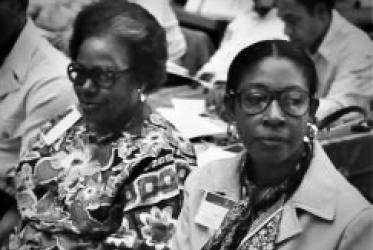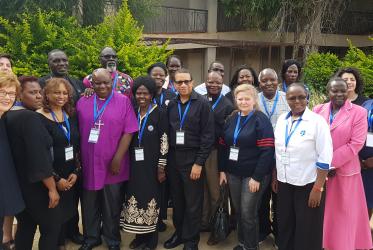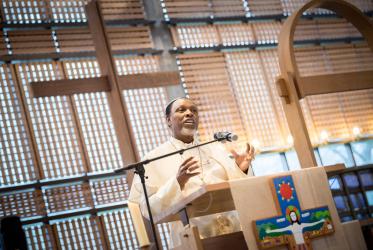Displaying 1 - 20 of 33
Linda Bloom reflects on three decades with United Methodist News
08 February 2021
In pictures: Week of Prayer for Christian Unity
01 February 2021
Listening together to the pain of violent spaces
28 February 2020
Churches should use their voice on climate change
26 February 2020
WCC joins tribute to Rev. Canon Prof. John Samuel Pobee
28 January 2020
WCC well-represented in Religions for Peace leadership
07 October 2019
WCC pressing ahead with disarmament work
28 August 2019
3rd Explorations in Evangelism meeting: "Evangelism and the legacies of colonization and enslavement"
23 - 28 June 2019
Toronto, Canada
Thursdays in Black: sharing support, transforming lives
21 February 2019
An advocate for family values, called by God
26 March 2018
Emily Welty: tide of hope for a world free from nuclear weapons
19 September 2017













